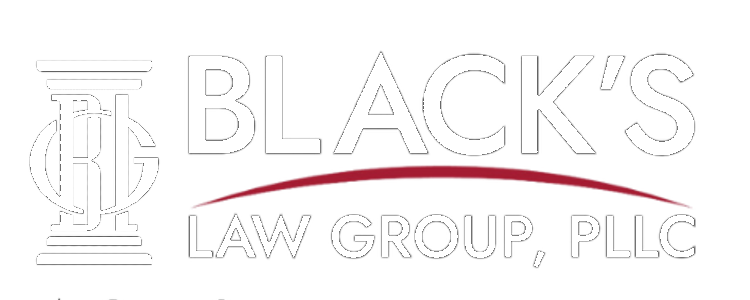Are you or a loved one the victim of a family violence incident? Is your ex-boyfriend or girlfriend harassing and stalking you? If so, you may be wondering what legal tools are available to protect you. One of the options that may be available to you is seeking a restraining order in civil or family court. In Connecticut, there are two types of restraining orders that a civil or family court judge can order: those for Relief from Abuse or a Civil Protection Order.
These two different orders ultimately accomplish the same thing by placing limitations on whether another person can contact you or be nearby your home. However, to receive the benefit of one of these orders, you will need to go through the process of holding an evidentiary hearing, where the other person can respond to your allegations and claims. The judge will then decide whether such an order is appropriate after hearing all of the evidence.
If you or a loved one are seeking either a Relief from Abuse Restraining Order, you are likely scared and overwhelmed. You may not know where to begin or what to do. Our restraining order attorneys are here to help. Call Black’s Law Group today for a free consultation. Until then, here is some general information on Relief from Abuse Restraining Orders.
Who are the “parties” in a Relief From Abuse Restraining Order?
If you are the person applying for a restraining order, you are referred to as the applicant. If you are responding to the restraining order, you are referred to as the respondent.
What is a Relief From Abuse Restraining Order?
These types of restraining orders are only available where both the applicant and respondent are “family or household members” who are the victim of domestic violence.
We all think we know what domestic violence means. However, its common usage and understanding is secondary to how the courts will view it, which is set out by statute. Specifically, in Connecticut, domestic violence for a Relief From Abuse Restraining Order refers to the following situations:
- A continuous threat of present physical pain or physical injury against a family or household member
- Stalking
- A pattern of threatening of such family or household member or a third party that intimidates such family or household member
- Coercive control of such family or household member, which is a pattern of behavior that in purpose or effect unreasonably interferes with a person’s free will and personal liberty
What is a family or household member?
Just like “domestic violence,” the term “family or household member” has a specific definition in Connecticut. A family or household member means any of the following persons, regardless of the age of such person:
- Spouses or former spouses
- Parents or their children
- Persons related by blood or marriage
- Persons presently residing together or who have resided together
- Persons who have a child in common regardless of whether they are or have been married or have lived together at any time
- Persons in, or who have recently been in, a dating relationship.
What do I need to do to apply for Relief From Abuse?
The process starts when you actually file your application and affidavit with the clerk’s office in the courthouse. Your application will include all of the necessary biographical information about yourself and the respondent, what types of conditions you are asking the court to include, and the opportunity to request ex-parte relief (more on that shortly).
The affidavit is your chance to tell your story. If you do this yourself, you can write out the affidavit in your own words. If you hire an attorney to help you with it, they may want to write the affidavit with you to make sure everything necessary is included but also, to write it more formally as if it were any other type of legal pleading.
What is ex-parte relief?
In most circumstances, due process principles prevent courts from taking any action against someone without that person having an opportunity to be heard. In restraining order matters, courts do have the ability to order temporary relief without the other side having a chance to respond.
“Ex-parte” orders are given after the court only hears one side of the story, the applicant’s. If a court grants ex-parte relief, they issue a temporary order prohibiting the respondent from contacting or visiting the applicant.
Essentially, the temporary order remains in effect until the court holds the evidentiary hearing between the parties and decides whether to issue an actual Relief From Abuse Restraining Order.
What happens after a Relief From Abuse Application is filed?
After an application and affidavit are filed, the court will decide whether your claims meet the legal criteria for such an order. If they do, the clerk’s office will then provide their order and the accompanying paperwork to a marshal, who will then serve the respondent with the paperwork. The applicant will also receive a copy of this paperwork.
Both sides will be given the next court date, which is the date of the evidentiary hearing. Depending on whether the respondent is a firearm owner or not, the hearing will either occur in 7 or 14 days. That’s right, one or two weeks.
These proceedings move very quickly.
What can I expect at an evidentiary hearing?
You may not have a jury, but these hearings are essentially trials. Both sides will be given the opportunity to present their own evidence, call witnesses, and argue to the court about whether to grant or deny the application for a restraining order.
If you or someone you love need to apply for or defend against a Relief From Abuse Restraining Order, call the attorneys at Black’s Law Group for a free consultation.
Restraining orders can affect your job, your family, and reputation in the community. You or your loved one are probably scared of what lies ahead, regardless of whether you or seeking one or responding to one. You will want to hire the right team of Connecticut defense attorneys to thoroughly evaluate, investigate, and guide your case towards the best possible outcome. That’s where Black’s Law Group comes in. Call Black’s now to schedule your free consultation.

